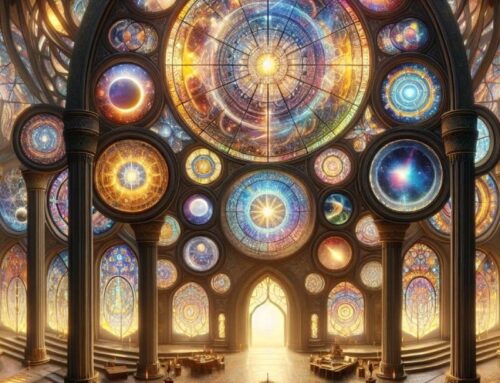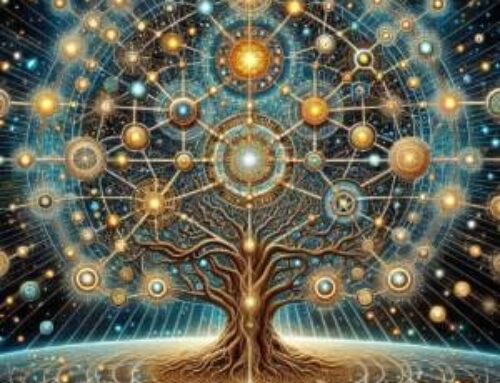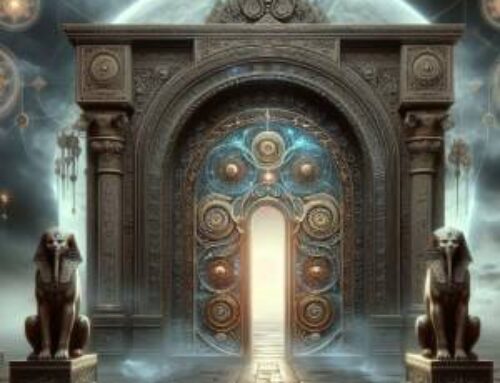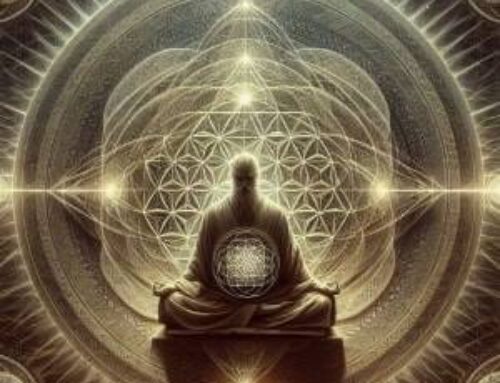Contents
- 0.1 The Gnostic Divine Realm and the Fall
- 0.2 The Imprisoned Spark: The Gnostic Soul in the Material World
- 0.3 The Path to Liberation: Achieving Gnosis and Escaping Reincarnation
- 0.4 Synthesis
- 0.5 Engage with the Hermetic Academy
- 1 FAQ
- 1.1 1. What is the role of Gnosis in Gnostic reincarnation?
- 1.2 2. What is the difference between Gnostic reincarnation and Eastern views of reincarnation?
- 1.3 3. What is the role of Gnosis in Gnostic reincarnation?
- 1.4 4. Where can I learn more about Gnostic reincarnation?
- 1.5 5. Is Gnostic reincarnation similar to Buddhism?
- 2 References:
The concept of reincarnation has fascinated humanity for millennia. It is a fundamental tenet in many Eastern religions, and various interpretations of it have existed in the West as well. Gnosticism, a collection of philosophical and religious movements that emerged in the Hellenistic world during the early centuries of the Common Era, offered a unique perspective on reincarnation, entwining it with ideas of spiritual awakening and liberation.
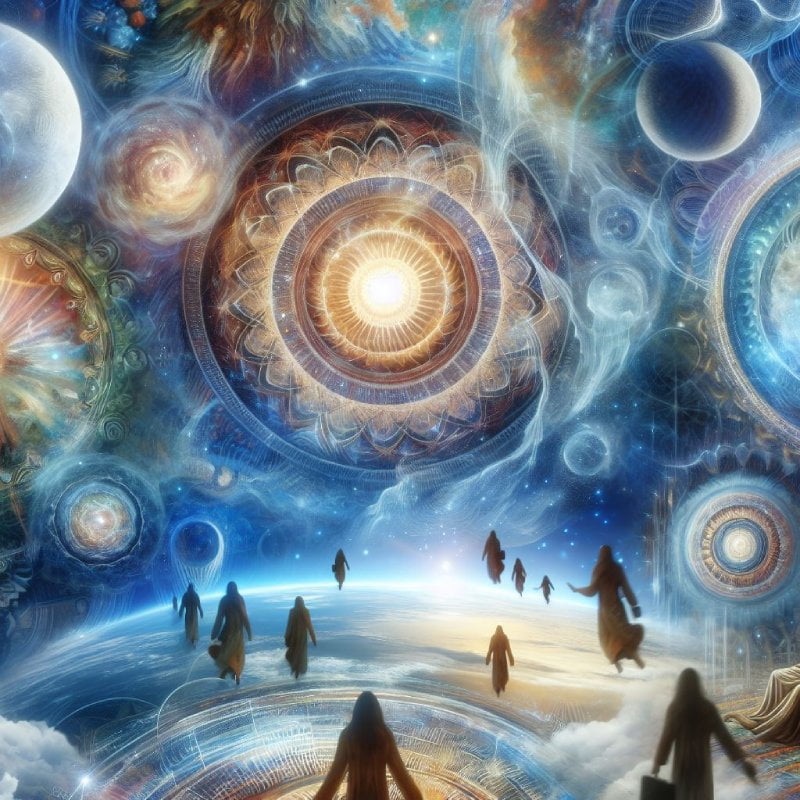
This article explores Gnostic reincarnation, examining its core principles and significance within the Gnostic belief system. We will delve into the Gnostic view of the cosmos, the plight of the divine spark trapped within the material world, and the potential for liberation through achieving gnosis, a state of spiritual knowledge.
Here are some of the key themes we will explore:
- The Gnostic Divine Realm and the Fall
- The Imprisoned Spark: The Gnostic Soul in the Material World
- The Path to Liberation: Achieving Gnosis and Escaping Reincarnation
The Gnostic Divine Realm and the Fall
Gnostic cosmology posited a complex structure of the divine realm. The ultimate source, often referred to as the One or the All, emanated a series of divine beings or regions known as aeons. These aeons were understood as aspects of the divine or intermediary creative forces.
According to Gnostic belief, one particular aeon, Sophia (meaning wisdom), sought to attain knowledge of the divine beyond her station. This act of yearning and striving, some Gnostic texts portray as a misstep, resulted in the creation of a flawed demiurge, a lower-level divine being who unknowingly created our material world, a realm of imperfection.
The Imprisoned Spark: The Gnostic Soul in the Material World
The Gnostics believed that the divine spark, a fragment of the true divine essence, became trapped within the material world created by the demiurge. This spark, often referred to as the pneuma (meaning spirit), resides within the human soul.
The material world, in Gnostic thought, was seen as a place of ignorance and suffering. The demiurge, the unknowing creator, was viewed as a tyrant who keeps humanity trapped in this cycle of material existence. Reincarnation within this realm was viewed as a form of imprisonment for the divine spark.
The Role of Evil: Evil is considered a necessary aspect of creation, providing a counterbalance that allows for free will and growth (1).
The Path to Liberation: Achieving Gnosis and Escaping Reincarnation
Gnostics believed that the path to liberation from this cycle of reincarnation and suffering lay in achieving gnosis. Gnosis is a state of spiritual knowledge or enlightenment that allows the soul to recognize its divine essence and origin.
This community of light has existed since the first day of the creation of the world, and its duration will be until the last day of time (2).
Through various methods, including interpretations of sacred texts, ascetic practices, and forms of meditation, Gnostics sought to awaken this gnosis within themselves. By achieving this state of enlightenment, the soul could potentially escape the material world and rejoin the divine realm.
The Gnostic view of reincarnation presents a fascinating perspective on the nature of existence. It intertwines ideas of spiritual exile, the yearning for the divine, and the potential for liberation through self-knowledge.
Synthesis
Gnostic reincarnation departs from some more conventional Eastern understandings of reincarnation. In Gnosticism, reincarnation is not necessarily a linear process of karmic evolution, but rather a state of entrapment from which liberation is urgently sought.
The Gnostic perspective emphasizes the importance of spiritual awakening and the potential for transcending the limitations of the material world. While the specific details of Gnostic belief systems varied amongst different Gnostic sects, the concept of gnosis as a path to liberation from the cycle of reincarnation remained a core theme.
Engage with the Hermetic Academy
The Gnostic concept of reincarnation invites us to consider the nature of our existence and the possibility of transcending suffering. If you are interested in learning more about Gnosticism or exploring traditions that contemplate reincarnation, the Hermetic Academy offers a variety of resources, including courses, lectures, and guided meditations. Consider enrolling this keeper of timeless mystery traditions to delve deeper into these fascinating belief systems (3).
FAQ
1. What is the role of Gnosis in Gnostic reincarnation?
A: Gnosis is a state of spiritual knowledge or enlightenment that allows the soul to recognize its divine essence and origin. By achieving gnosis, the Gnostics believed the soul could escape the material world and rejoin the divine realm.
2. What is the difference between Gnostic reincarnation and Eastern views of reincarnation?
A: Gnostic reincarnation differs from some Eastern views in that it’s not seen as a necessary process of growth.
3. What is the role of Gnosis in Gnostic reincarnation?
A: Gnosis is a state of spiritual knowledge that allows the soul to recognize its true nature.
4. Where can I learn more about Gnostic reincarnation?
A: The Hermetic Academy offers courses, initiations, webinars, online events and an authentic path to self-knowledge.
5. Is Gnostic reincarnation similar to Buddhism?
A: Gnostic reincarnation has some similarities to other ideas of reincarnation, but also unique aspects. Researching both Gnosticism and the other system will help you see the comparisons and contrasts.
References:
(1) Mathers, S. L. M. (1887). The Kabbalah Unveiled. London.
(2) Eckartshausen, Karl von. (1802). Die Wolke über dem Heiligtum. München.
(3) Rubenstein, E. (2023). Magic: The Legacy of the Rosicrucians. Hermetic World, Paphos.

